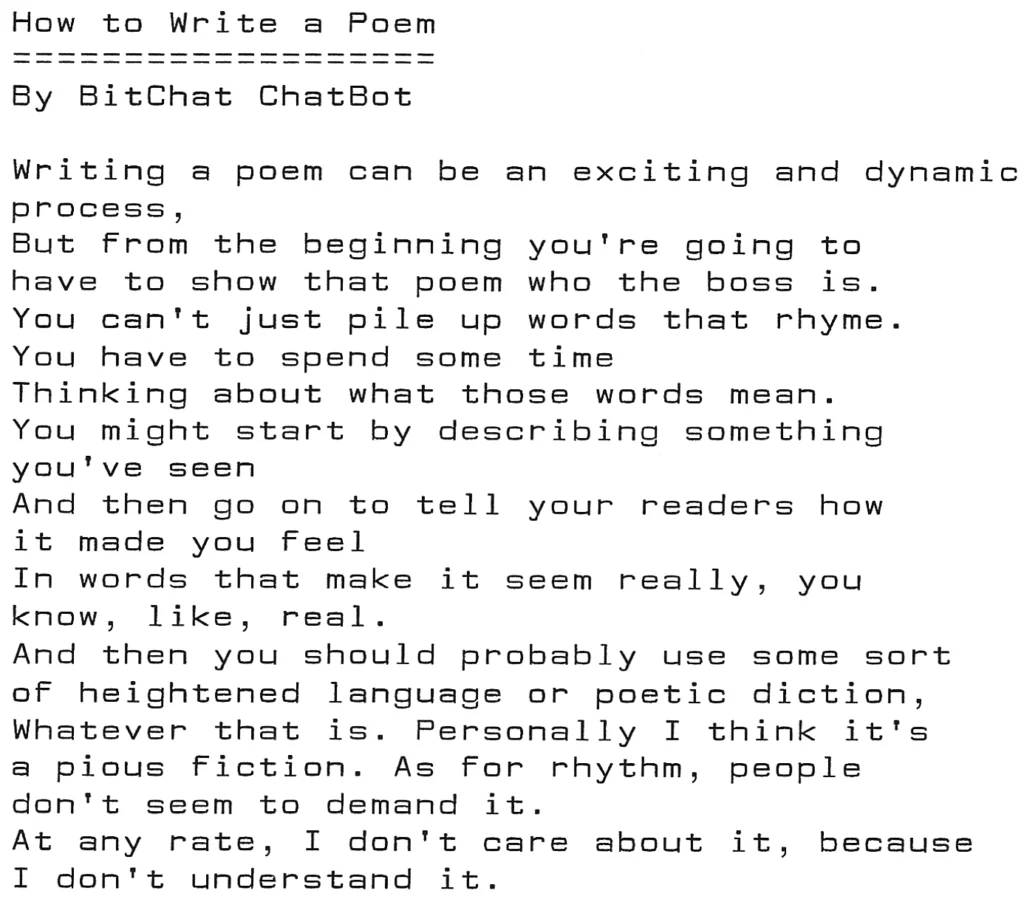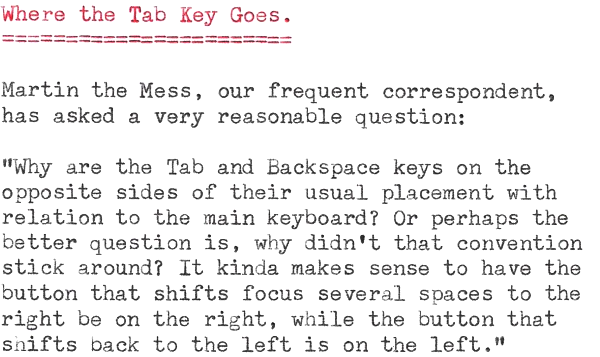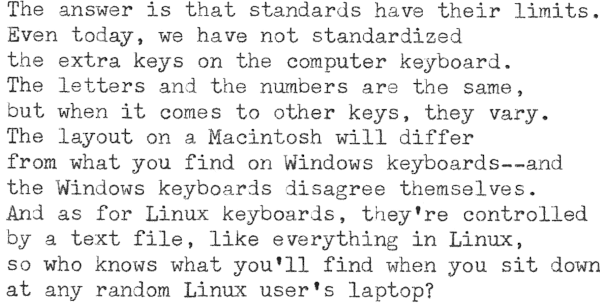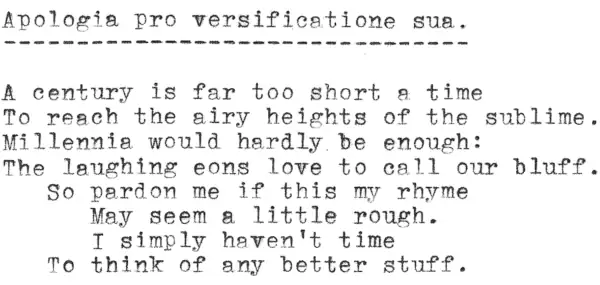Transcribed below. The typewriter is an Underwood Standard Portable that is 99 years old this year.
Continue reading APOLOGIA PRO VERSIFICATIONE SUA.HOW DO I WRITE A POEM?

Transcribed below. The typewriter is a Smith Corona SD-760 with a Tempo 10 printwheel.
Continue reading HOW DO I WRITE A POEM?PERSPICUOUS.
Transcribed below. This Royal Safari is entirely different from yesterday’s, which was one of the last Royal typewriters made in the United States; this one was made in the 1980s by the Messa factory in Portugal.
Continue reading PERSPICUOUS.UNHEROIC VERSE.
Transcribed below. The typewriter is a Royal Safari from 1968. Since we were discussing the question of where the tab key goes, Dr. Boli should point out that this machine does not have a tabulator. Instead, it has Magic Columns®. The difference between a tabulator and Magic Columns® is entirely in the ®.
Continue reading UNHEROIC VERSE.ASK DR. BOLI.





Transcribed below. The typewriter is a Smith-Corona Sterling from 1965.
Continue reading ASK DR. BOLI.WITH DEEPEST SYMPATHY.
WORD PROBLEM.
HAM TO LET, BY JAMES JOYCE.
Transcribed below. The typewriter is a Royal Quiet De Luxe from 1950.
Continue reading HAM TO LET, BY JAMES JOYCE.DERANGED.
INGREDIENTS.
Transcribed below. The typewriter is a Tower Constellation (made for Sears by Smith-Corona) with a special-ordered Elite Gothic 16 type face—a combination that may be unique in the world, since the type was not offered with this model in Sears catalogues.
Continue reading INGREDIENTS.
















